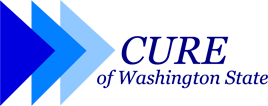Semantic Deception – updated
August 3, 2013
Beware of “semantic deception.” Many social planners and education elites use vague words with multiple meanings to describe their policies. The general public thinks a word means one thing, while the elites intend the word to mean something else. For example, take the word “sustainable”. What is being sustained? For how long? Who is sustaining it? Why are we sustaining it instead of increasing it, whatever “it” is?
The elites will use a word that SOUNDS like a familiar term, but which means something else. For example, take the words “tests” and “assessments.” They are not the same thing. When people call the WASL a “test” they are incorrect. The WASL is an “assessment.”
When talking to administrators, professors, and government officials, don’t be afraid to ask them to define their terminology.
“New” Education Terminology Watch out; “they” say one thing and mean something else.
Testing terms This explains the difference beween “assessments” and “tests”, andthe terms “valid” and “reliable”
Glossary from EdWatch. Ed Watch, also known as the Maple River Education Coalition, is an education research group in Minnesota. Although they are in Minnesota the terminology is useful for us here. (The MCA they mention is their version of our WASL.)
Tags: deception, terminology, vocabulary
Beware of “semantic deception.” Many social planners and education elites use vague words with multiple meanings to describe their policies. The general public thinks a word means one thing, while the elites intend the word to mean something else. For example, take the word “sustainable”. What is being sustained? For how long? Who is sustaining it? Why are we sustaining it instead of increasing it, whatever “it” is?
The elites will use a word that SOUNDS like a familiar term, but which means something else. For example, take the words “tests” and “assessments.” They are not the same thing. When people call the WASL a “test” they are incorrect. The WASL is an “assessment.”
When talking to administrators, professors, and government officials, don’t be afraid to ask them to define their terminology.
“New” Education Terminology Watch out; “they” say one thing and mean something else.
Testing terms This explains the difference beween “assessments” and “tests”, andthe terms “valid” and “reliable”
Glossary from EdWatch. Ed Watch, also known as the Maple River Education Coalition, is an education research group in Minnesota. Although they are in Minnesota the terminology is useful for us here. (The MCA they mention is their version of our WASL.)
Tags: deception, terminology, vocabulary








